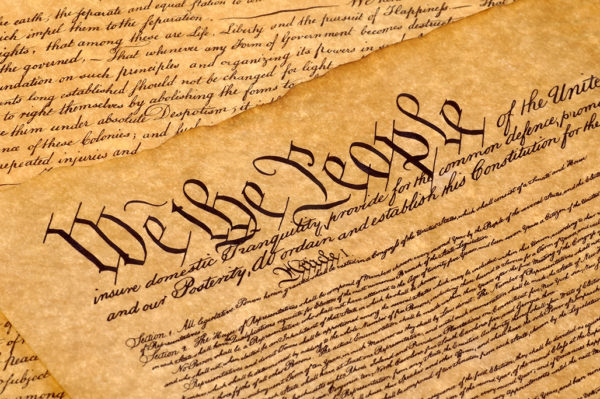With the decision of the US Supreme Court to affirm the legality of same sex marriage, the matter of equal standing for g/l/b/t persons advanced greatly. It might in fact be assumed that with that determination, any legal justification that supports discrimination based on sexual orientation was all but eliminated. Such is not the case, however, and the issue continues to be contested in various arenas and under various guises, although history may come to view such efforts as reflexive rear guard actions in response to rapid social change.
In addition, as legal barriers have fallen, a whole other rationale has arisen behind which some persons have sought to shield themselves from what is now settled law, and that is an appeal to religious exemption. The rationale is that a person’s strongly held religious beliefs should provide exception for them from having to acknowledge gay marriage, even as it extends to that person’s functioning in the public arena.
A particular clerk in rural Kentucky has become the banner figure for this point of view, as she has repeatedly and persistently refused to issue marriage licenses to any same sex couple seeking such in her office. The matter has quickly moved to and through legal arenas, in which settings she has been repeatedly rebuffed, and now finally the Supreme Court of the United States has refused her repeal. She continues to hold to her position and she and her staff as of this writing have been summoned again to court.
Perhaps individuals such as this clerk and others who vehemently object to same sex marriage see it is a plague on the land. That would be ironic in that, while they might see themselves as the righteous among the fallen, they could in fact be more like Pharaoh in the Old Testament whose heart was hardened by God. Thus in his stubbornness, Pharaoh failed accurately to perceive the will of God, and failed to comprehend the true meaning of plagues upon his land as a sign of his oppression. He obdurately and blindly sought to keep the Hebrew people enslaved when God wanted them freed. It is unlikely that this clerk and others who embrace similar sentiments could embrace the notion that in fact they stand in opposition to the will of God, but theologically it is a clear possibility.
To this point, the clerk has seemed to stand forth, if only self-anointed, as a modern day martyr to her cause, with the banner of righteousness boldly emblazoned above her brow and the robe of righteousness adorning her shoulders. She is quoted as saying she is acting under God’s authority.
Yet her actions have not entailed the kind or degree of sacrifice, or humbleness for that matter, that many others have shown in service to their faith. Those seeking her services have been the ones to pay, as it were, for her beliefs, which thus far have cost her nothing.
If her faith were as commanding as she suggests, then she could at any point have foregone the job and proven herself truly willing to sacrifice for her faith, not, as it has been, cause others to suffer by her failure to adhere to her oath of office. A biblical admonition is that we cannot serve God and mammon, yet she has sought to parlay a religious mandate in a secular setting.
Troubling, too, is how convenient the religious exemption argument is as it has been employed in trying to mute the validity of gay marriage, or any other challenging issue for that matter.
I recall one time when a friend visiting from out of state got in the passenger side of my car and, as she fastened the seat belt and set it behind her back, stated, “I don’t believe in seat belts.” I thought, what does belief have to do with it? What you mean is that you do not want to wear the belt even though you know it is required, and furthermore that it has been shown to lessen injuries and/or save lives in an accident.
Belief is not by its nature a casual exercise, to be invoked when it serves a desired end and then to be ignored when it becomes a hindrance. Faith precepts are discredited when they are employed only as handy shibboleths to justify what any of us wants, or does not want, to do regardless of other factors. Faith most serves us when it is used as a foil, that is, used to challenge us in our assumptions, discomfort us in our comforts, provide us solace in times of emptiness, and foster modesty in times of undue certainty.
It is simply too easy an out for a civil servant in Kentucky or anywhere to say she will not perform her job because her faith enjoins her from doing that. Like my friend who “did not believe” in seat belts, it has to be asked if the clerk simply wanted something monumental–and what is more monumental than God?– to appeal to to justify a basic reluctance to do something she otherwise felt disinclined to. The question needs to be asked whether her call to duty was subjugated to her desire to promote her own point of view, and whether she therefore chose to mask that dynamic under the guise of a self-framed piety, thereby by extension sheltering her own rather parochial perspective within the impregnable armor of divine warrant.


